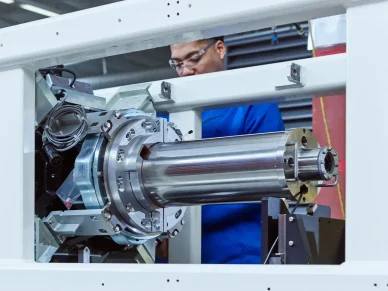
Purchasing an industrial pump for your business can be a major investment and a crucial decision. With the wide range of pumps available on the market, it can be overwhelming to find the one that meets all your needs. From selecting the right type of pump to understanding its technical specifications, there are various factors to consider before making a purchase. In this comprehensive buying guide, we will walk you through everything you need to know about purchasing a high-quality industrial pump that is perfect for your specific application. So whether you are in the manufacturing, mining, or construction industry, this article has got you covered with expert tips and insights on finding the perfect pump for your business needs.
Understanding the importance of a high-quality industrial pump in various industries
In today’s fast-paced world, industries are constantly looking for ways to streamline their operations and optimize output. Whether it’s transporting water or other fluids, providing ventilation or power, or controlling chemical processes, a high-quality industrial pump is crucial in myriad applications.
The importance of these pumps lies not only in their efficiency but also in their durability. When you invest in a reliable pump for your industry, you are not only maximizing your productivity but also minimizing your long-term costs. With proper maintenance, a high-quality industrial pump can last for years and reduce the risk of costly downtime.
Identifying your specific pumping needs and requirements
When it comes to pumping, identifying your specific needs and requirements is crucial. Whether you are trying to drain a basement or move liquid in your industrial operation, the pump you choose needs to be a perfect match for your particular situation. There are countless pumps available on the market, each designed for a specific purpose, which can make choosing the right one a challenge.
However, by taking a close look at your unique requirements, you’ll be able to determine which pump is the best fit. Factors such as the flow rate, the type of liquid being pumped, and the distance the fluid needs to travel are all important considerations.
Factors to consider when choosing an industrial pump
When it comes to choosing an industrial pump, there are several crucial factors to consider. One of these is the flow rate, which refers to the amount of fluid that the pump can move through the system per unit of time. Another factor is the pressure, which determines the force that the pump can exert on the fluid, thereby affecting its movement through pipes and valves. Moreover, finding a reliable pump supplier online can be everything you need to do. That way, you can browse various options, compare prices and features, and ultimately make an informed decision.
Additionally, it is essential to consider the material compatibility of the pump with the fluid being pumped. Some fluids may be corrosive or abrasive, requiring a pump made from a specific type of material for maximum efficiency and longevity.
Types of industrial pumps available in the market
In the world of industrial machinery, pumps play a critical role in ensuring that vital fluids are efficiently transported from one location to another. When it comes to choosing the right pump for your business needs, there are several options available in the market. Among the most common types of industrial pumps are centrifugal, diaphragm, and positive displacement pumps.
Centrifugal pumps rely on an impeller to create a flow that moves fluid through the unit, while diaphragm pumps use a flexible membrane to pressurize and move the fluid. Positive displacement pumps are a bit more complex, using a series of gears, rollers, or similar components to move fluid. Each type of pump offers its own advantages and disadvantages, so it’s important to carefully evaluate your business needs before settling on a pump of choice.
The importance of maintenance and regular checks of your pump
A pump is a vital device for many industries and applications. It is responsible for keeping fluids and gases moving efficiently from one place to another. However, even the most reliable pump can fail if not well maintained. That’s why regular pump checks and maintenance are crucial to ensure optimal performance and longevity. Regular checks can help identify potential issues before they escalate, prevent costly downtimes, and extend the lifespan of the pump.

In the end, choosing the right industrial pump requires careful consideration of various factors such as your specific needs, types of pumps available, maintenance requirements, and budget constraints. By doing so, you can enhance productivity and efficiency while minimizing downtime and potential hazards in your operations. Remember to consult with experts and conduct thorough research to make an informed decision that will benefit your business in the long run.
















Leave a Reply